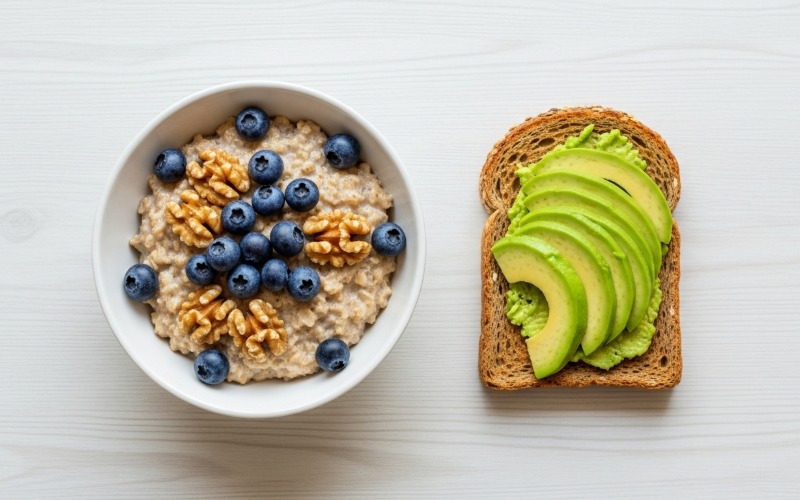
Living with diabetes is a journey of mindful choices, and your morning routine is the perfect place to set a positive course for your entire day for effective diabetes management. Chronic inflammation can be a significant concern for people with diabetes, as it can affect how your body uses insulin and manages blood sugar. The great news is that simple, consistent habits can make a powerful difference.
By incorporating these five anti-inflammatory practices before noon, you can help stabilize your glucose levels, reduce stress, and take proactive control of your health.

1. Stabilize Your Day with a Balanced Breakfast
Eating within an hour or two of waking can help prevent low blood sugar and set your metabolic rhythm for the day. A breakfast that combines protein, healthy fats, and high-fiber carbohydrates provides a slow, steady release of energy, preventing sharp spikes in your blood glucose.
This balance is key to fighting inflammation and keeping you feeling full and focused.
What to try:
- Oatmeal cooked with milk or a protein shake, topped with a handful of berries and walnuts.
- Scrambled eggs with spinach and a side of whole-wheat toast.
- A smoothie with plain Greek yogurt, chia seeds, and a low-glycemic fruit like avocado or berries.
2. Boost Gut Health with Greek-Style Yogurt
Your gut health is closely linked to your body's inflammatory response. Plain, unsweetened Greek-style yogurt is an excellent source of protein and probiotics—the beneficial bacteria that support a healthy gut microbiome. A balanced gut can help reduce systemic inflammation and may even improve insulin sensitivity.
When choosing a yogurt, be sure to check the label for "live and active cultures" and avoid varieties with added sugars or artificial sweeteners.

3. Lower Blood Sugar with a Brisk Morning Walk
You don't need a high-intensity workout to reap significant benefits. A brisk 20-minute walk can make your muscles more sensitive to insulin, allowing them to pull glucose from your bloodstream more effectively for up to 24 hours.
This simple activity not only helps lower your blood sugar but also reduces stress hormones, boosts your mood, and gets your circulation going—all of which contribute to a lower-inflammation state.

4. Hydrate and Fight Inflammation with Green Tea
Consider swapping a morning cup of coffee for green tea. It’s rich in powerful antioxidants called polyphenols, particularly epigallocatechin gallate (EGCG), which is well-studied for its anti-inflammatory effects.
Research suggests that green tea can help lower fasting glucose levels and reduce markers of inflammation. It’s a hydrating, calming, and beneficial way to start your day.
Frequently Asked Questions (FAQs)
Why is reducing inflammation important for people with diabetes?
Chronic inflammation can contribute to insulin resistance, making it harder for your cells to use glucose for energy. This can lead to higher blood sugar levels and increase the risk of diabetes-related complications. Adopting an anti-inflammatory lifestyle helps improve your body's response to insulin.
How soon after waking should a person with diabetes eat?
While it varies for each individual, most experts recommend eating within one to two hours of waking up. This helps stabilize blood sugar after an overnight fast and prevents potential hypoglycemia (low blood sugar), especially for those who take insulin or certain diabetes medications.
Can these morning habits replace my medication?
No. These habits are intended to support your overall diabetes management plan, not replace it. Always follow your healthcare provider's advice regarding medication, diet, and exercise. Think of these habits as powerful tools that work alongside your prescribed treatment.
What are other anti-inflammatory foods I can eat?
Besides the foods mentioned, you can incorporate fatty fish (like salmon), leafy greens (like spinach and kale), nuts, olive oil, and colorful fruits and vegetables into your diet. These foods are rich in antioxidants and healthy fats that help fight inflammation.
Medical Disclaimer: This post is for informational purposes only and not a substitute for professional medical advice. Consult your doctor for personal health recommendations.





0 comments